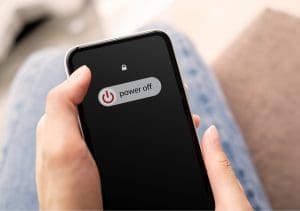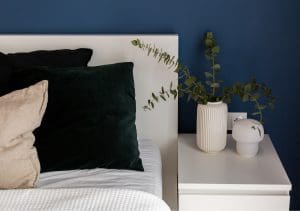Sometimes it can be helpful to spend time away from screens (our phones and computers). In this article, we talk about why this can be useful and give some tips to help you.
This article is to help you:
- Understand more about how phones and computers (devices) can affect us
- Notice if you are using your devices too much
- Take a break from screens
How screens can affect us
Using screens too much can affect our emotions, physical health, social lives and jobs. It can cause problems like:
- Stress and anxiety
- Trouble sleeping
- Damage to our eyes
- Feeling lonely
- Finding it hard to concentrate
- Not being able to complete tasks
Checking in with ourselves
Sometimes, it can be hard to tell if using phones and computers are a problem. But we can start by thinking about if we:
- are spending more time on our screens than usual
- lose track of time when we are on the phone or a computer
- feel we cannot stop using them, even when we notice the time passing
- feel restless or moody when we do not have them
- use the internet to avoid thinking about problems or difficult emotions
- have sore eyes and headaches from using our screens so much
- struggle to get to sleep at night
If we feel like this, we might want to think about having a break from our devices. We call this a ‘digital detox’.
Digital detox
A ‘digital detox’ is sometimes called ‘unplugging’. It is when we choose to reduce the time we spend on our phones or computers. Or it might mean not using them at all. It could be taking time out from one device, like a smartphone, or from all of them. You might choose not to use a device or just not use it for a certain thing, like social media. Having a digital detox can be a chance to reduce stress or focus on social interaction.
Taking control of your screen time
If you’re looking to get control of your screen time, check out these tips.

Set a limit
Set a time limit on your device or app. You can do this with Apple’s Screen Time or Google’s Digital Wellbeing.

Remove devices from some places
Make sure there are rooms or times where you do not use devices. For example, you might not use your phone in your bedroom so you can sleep better.

Do not charge your phone beside your bed
At night, plug your phone into a socket that is not beside your bed. If you need an alarm for the morning, see if you can use an alarm clock instead of your phone.

Take a break
Remember to take a break from screens when you are working or studying. Try to have a break from screens every 30 minutes.

Try new hobbies
Sometimes, we reach for our phones when we are bored. Instead, try a new hobby like reading a book, writing in a journal or drawing.
More information
This article was written in collaboration with First Psychology who are one of our Delivery Partners. They have created a workbook and guide about taking a digital detox.



